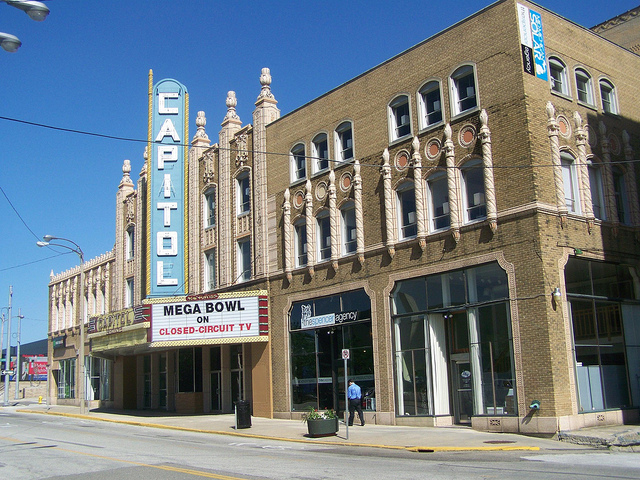FLINT — Michigan State University’s medical school is joining downtown Flint, announcing plans to open a community campus in the heart of the city.
MSU’s College of Human Medicine will develop public health programs, recruit and house top public health researchers and provide office and classroom space for staff, faculty and students in a yet-to-be determined downtown location, according to plans MSU was set to publicly unveil today.
The Charles Stewart Mott Foundation will fund an initial grant of $2.8 million for the project that college officials say will allow Flint to join East Lansing and Grand Rapids as pillars of the college’s statewide footprint and hopefully help grow more local doctors.
“We have a really strong and vibrant healthcare and medical education training community already here,” said Neal Hegarty, Mott Foundation vice president and associate director of programs. “It’s about leveraging and building upon our assets and strengths and addressing really critical needs in our community.”
Hegarty said several sites are being considered for the campus that would provide both administrative and educational space but said it was “premature” to name places of interest. Leaders want the campus to be in a visible and central area and part of Flint’s growing higher education community, he said.
The first phase of the project is expected to be rolled out in the next six months, Hegarty said, as more details are hammered out.
An MSU advisory committee that includes representatives from the Flint-area medical, higher education, business and religious communities will help determine local public health needs for research topics, according to MSU.
The college will then hire six to seven experienced researchers with national funding focusing research on the needs identified as most crucial to the Flint community.
Hegarty said Genesee County’s grim rankings in areas of obesity, diabetes, heart disease, violence and other health issues make it an important county for exploring research on prevention and healthcare improvement.
“It’s going to embed research and programs specifically responsive to community needs,” Hegarty said. “It’s an opportunity that’s never really been done before, completely community-driven health programs … and training doctors serving under-served populations.”
The MSU college of human medicine will expand its online master’s level program in public health, with faculty and staff to be based out of the new campus. Students in the program will also undergo their required fieldwork and classwork there.
MSU also plans to increase the number of third- and fourth-year medical students at the three Flint-area hospitals and other clinical sites from about 60 to 100 students who are currently based out of a wing of Hurley Medical Regional Center.
In 2008, the Mott Foundation funded a $285,000 study by the Hurley Foundation on the feasibility of building a medical school in Flint.
Hegarty said the study found that it was more feasible to “expand the medical education community” already in place and boost its visibility in the city.
“The goal is not to create a brand new medical school,” Hegarty said. “This is not creating something new but it’s a new approach to something the community has been doing for many years.”
“We hope we can draw more money into the medical education and healthcare research community here and we hope we can provide an expanded pipeline for people from this region to get medical degrees.”
MSU’s College of Human Medicine has already strengthened links to local college students through two early assurance program agreements with the University of Michigan-Flint and Kettering University.
The early assurance program essentially reserves spots for premedical students from the two campuses who want to practice in under-served areas of medicine. Students who are accepted into the program are guaranteed spots in the highly competitive medical school by their junior year of undergraduate school.
“Flint has long been one of the most important education sites for our medical school. We have a long-standing and close relationship and now we want to take it to the next level,” said Marsha Rappley, dean of MSU’s College of Human Medicine.
“Flint right now is mobilizing for the development of the greater community and health and education are important parts of driving community development.”
She said the concept of recruiting researchers from around the country to do research specifically catered to the Flint community’s needs is a radical one for the college that could gain momentum.
“We really think we can craft a national model of how a medical school can make a difference in the lives of people who support it and live around it,” Rappley said.
Original article by Beata Mostafavi for MLive.
Read More →




